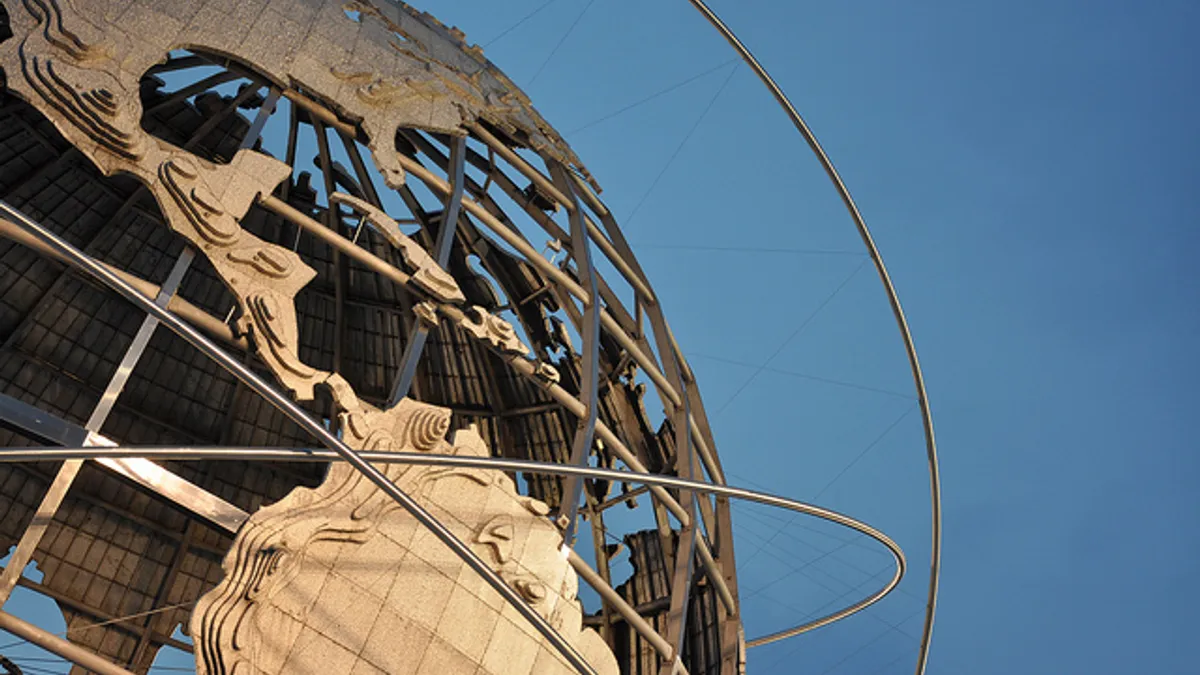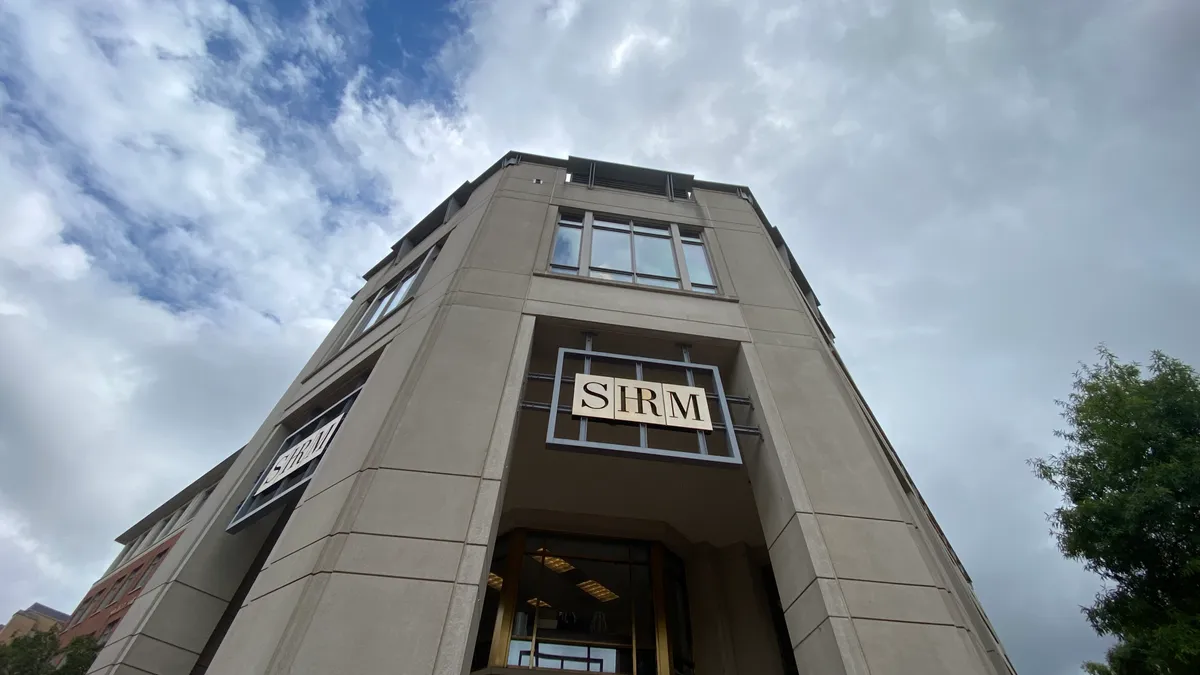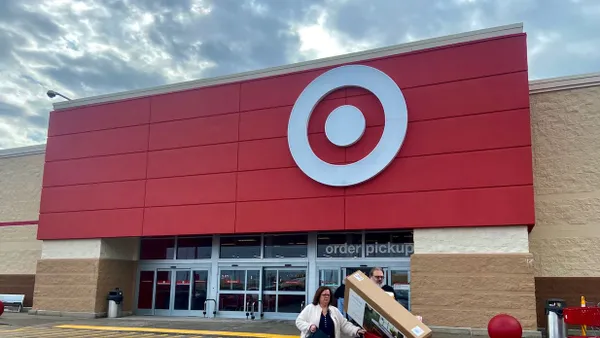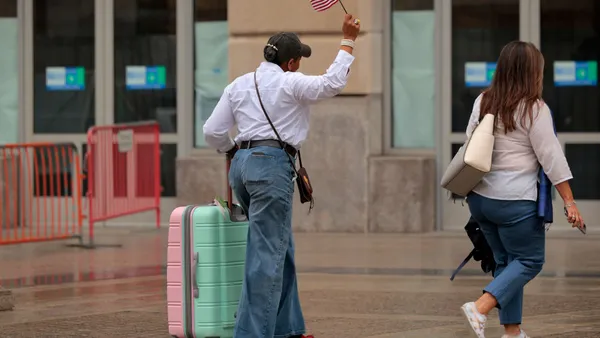Dive Brief:
- President Donald Trump signed an executive order Tuesday encouraging U.S. companies to "hire American and buy American." The order calls for "strict enforcement" of labor laws for workers coming to the U.S., creating an environment for higher wages and employment rates for American workers, according to senior administration officials in a White House briefing Monday.
- The order asks federal agencies, including the Departments of Labor, Justice, Homeland Security and State, to crack down on "fraud and abuse" of labor programs. A clause is dedicated to the H-1B program to ensure those agencies put reforms into effect rewarding visas to "the most-skilled and highest-paid applicants." The agencies would identify both administrative and legislative changes that could be made to change the H-1B program, whether that's increasing fees or further enforcement of program violations.
- The order reconfigures the current lottery award system so H-1B visas will be rewarded based on skills, which the administration says "makes it extremely difficult to use the visa to replace or undercut American workers because you're not bringing in workers at beneath the market wage." Trump signed the executive order at 3:20 pm ET Tuesday during remarks at Snap-on Inc., a tool manufacturing company in Kenosha, Wisconsin.
Dive Insight:
Trump has had the H-1B program in his cross hairs since the campaign trail. His arguments against the high-skilled immigration program revolve around companies using the H-1B visa holders to displace American workers. For Trump, it's "America first," with the priority given to high-end tech talent from the U.S.
But Trump's planned executive order comes after next year's deadline for H-1B visa petitions passed. Though program opponents called for changes prior to the opening of the cap, no movement was made until April 3, when U.S. Citizenship and Immigration Services began accepting applications. The Justice Department and USCIS warned employers petitioning for visas not to discriminate against U.S. workers. USCIS also said it would increase site visits to H-1B visa employers.
USCIS hit the cap of visa petitions in the first five days for the fifth year in a row. But this year, H-1Bs were in slightly less demand, echoing potential hesitation from companies concerned about program changes. USCIS received 199,000 visa petitions this year, down from the 236,000 it received last year.
The executive order in particular targets large consulting firms based out of India, such as Infosys Limited and Tata Consultancy Services, which were the leading employers of H-1B visa holders for the past three years. Changes to the program could spell trouble for the consulting companies moving forward, changing their access to positions at U.S. companies.
But this could also negatively impact the tech sector. In FY14, More than 64% of H-1B visas went to computer-related positions. If access is in any way clipped for companies, they could have more trouble accessing hard-to-find high tech talent.















